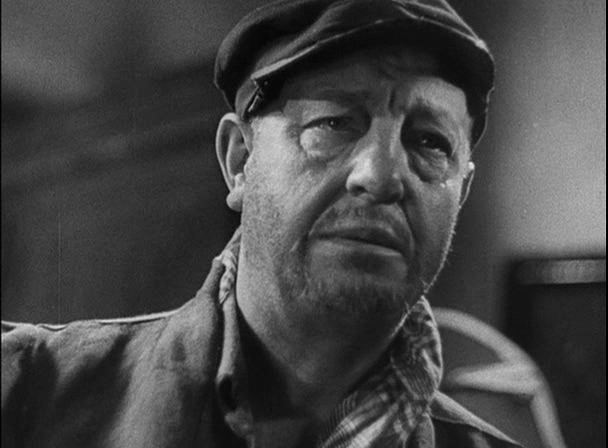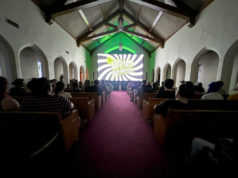Calm down, Les Mizzies. I haven’t somehow obtained an advance copy of the DVD of the movie musical that’s currently playing in theaters. Instead, I’m using the occasion to point you toward the 1934 French-language version of Les Misérables directed by Raymond Bernard, which is available on Criterion. I caught it this past summer, and it’s really good.
If you clicked on the preceding link and blanched at the running time of four hours and 39 minutes, don’t be discouraged. The saga was released as three separate movies, and the discs make it easy to break the film into easily digestible sections. If you’re used to watching seasons of TV shows on DVD, you won’t have a problem with this. The three parts were released in French theaters within three weeks of each other in February 1934 — imagine the nerdgasm that would have erupted if Peter Jackson had done the same thing with his Hobbit movies this year, or his Lord of the Rings trilogy. It was the first French-language sound film of the novel, and it was made at a time when there were still people alive who had known Victor Hugo. For these reasons, it includes much more of the novel than most other film adaptations. Each installment is preceded by this snippet of text from Hugo’s preface to his novel: “So long as ignorance and poverty exist on earth, books of the nature of Les Misérables cannot fail to be of use.”
For me, the most fascinating aspect of the film is the presence of Harry Baur as Jean Valjean. Most dramatic adaptations of Les Misérables cast handsome guys as Valjean, but Baur is fat and ugly in such a way that you can’t stop looking at him. The legendary Charles Vanel is a powerful Javert opposite him (and Robert Vidalin makes a magnetic, smooth-talking Enjolras), but Baur gives the truly great performance here. He’s mournful and beaten-down as the Valjean at the beginning of the story, but then he swaggers as the wealthy Valjean who owns a factory and serves as mayor of Montreuil. You believe he can lift the cart off Fauchelevent. He even stands out portraying the dimwitted Champmathieu, the prisoner who is mistaken for Jean Valjean. Originally, Baur was a stage actor, but he wound up appearing in 80 films, including portraying Beethoven in Abel Gance’s Beethoven’s Great Love. He came to an unfortunate end: He was Jewish, and in 1940 he was captured by the Nazis while trying to free his wife from captivity. The Gestapo tortured him to death. This movie remains to us as the best evidence of the powers of this singular actor.
Director Raymond Bernard was Jewish, too, but he successfully hid out for the duration of the Nazi occupation. Hugo wrote cinematically before there was a cinema, and Bernard does justice to the swift nature of the author’s action scenes. Thénardier’s attempt to rob Valjean is particularly well-handled, and the Friends of the ABC’s barricade looks rinky-dink in a convincing way even as the fighting taking place around it compels your attention. Nothing is wasted here, and nothing is included merely because it’s in the novel. The four-plus hours speed by, and yet there’s a wealth of detail in this telling, too. You can see why this is widely regarded as the best film version of Hugo’s novel.
There’s no shortage of other film versions. I recommend Claude Lelouch’s 1995 French version starring Jean-Paul Belmondo, a loose updating of the story to World War II (French resistance rather than French revolution). Stay away from the excruciatingly dull 1998 version with Liam Neeson, Geoffrey Rush, Uma Thurman, and Claire Danes.












